Bruce McAvaney opens up on his passion for the Commonwealth Games and his own plans for the future
Bruce McAvaney has been calling the biggest moments in world sport for nearly 50 years. And that isn’t stopping anytime soon. Get the details on his new deal.

Bruce McAvaney was only a few days out from leaving on the overseas trip he feared might never happen again when a hint of panic struck him and his wife Anne almost out of nowhere.
His passport was missing!
The legendary broadcaster who has provided the soundtrack to so many of our greatest sporting moments hadn’t travelled overseas since attending the Japan Cup in November 2019 - just a couple of months before the emergence of Covid-19 changed everything.
No one then could have imagined the stark reality of closed international and state borders, lengthy lockdowns and sporting events delayed, postponed or played in empty stadiums.
Like most of us, McAvaney hadn’t needed his passport for the past two-and-a-half years.
His excitement last week at getting the chance to attend the World Athletics Championships in Eugene, Oregon as a precursor to calling the athletics for Channel 7 at the Commonwealth Games in Birmingham meant he hadn’t given his passport much thought.
That is ... until his wife delicately broached the subject with him.
“Annie, my wife, is a very good organiser and (last Monday week) she said to me: ‘Macca, I am feeling a bit sick’,” McAvaney said.
“I said to her: ‘Why’s that, love?’ She said: ‘I can’t find your passport … When was the last time you travelled?’.”

The McAvaneys hosted “dear friends” at their home that night, proving a welcome distraction, but with only a few days left until his departure, the concerns were growing.
“I was starting to think, ‘I am not sure I am going away’,” McAvaney said. “Just before we went to bed on Monday night, I said to Annie: ‘We better have another look’.”
It was only then that she confessed she had been looking for some time without success.
“She had actually been looking for days without telling me, so we went through all our files,” he said. “I found what looked like a passport, but it ended up being a bank statement and an old cheque book. You obviously need a passport to board a plane, so we were nervous.”
The passport was finally found at 10pm that night, less than 72 hours to spare before he and his daughter Alex, were scheduled to board a plane on the first leg of their journey.
It wasn’t anywhere near the relief he and Raelene Boyle expressed that magical September night 22 years ago when Cathy Freeman won gold in the 400m in Sydney, but in the context of what has happened during the global pandemic, it wasn’t all that far removed.
He wasn’t sure he would ever call another major international event.
“I didn’t really believe it would happen again,” McAvaney said.
“Two things I was hoping to have the opportunity to do again was to put those headphones on and to be close to the finishing line, but also that we would have people surrounding us and roaring and urging and barracking and that’s what we will have again in Birmingham.”
Having played a key role in Channel 7’s award-winning broadcast of the delayed Tokyo Olympics last year - albeit from back home in Australia - he can’t wait for the Commonwealth Games to kick off in Birmingham in the early hours of Friday morning.
“I am pinching myself,” he said. “It is going to be an absolute joy and it is going to feel like old times for me, like it was in Gold Coast in 2018, the last time I have been to something like this.
“I didn’t really think in my heart of hearts that I would get this opportunity again, so you can imagine the enthusiasm.”

RICH TRADITION
Birmingham will be McAvaney’s fifth Commonwealth Games. He rattles off the magical moments that have made this event such a huge part of the Australian sporting psyche.
He went to Edinburgh as a general reporter for Channel 10 in 1986 and called the Manchester Games for Channel 7 in 2002.
McAvaney called the track and field for 3AW in Melbourne in 2006, alongside the late Clinton Grybas - who he calls a “brilliant operator” - as Channel 9 had the TV rights.
He was calling again for Channel 7 at the 2018 Gold Coast Commonwealth Games.
“Many Commonwealth Games moments are as rich as Olympic moments,” he said.
“If you think track and field, you think Jamaica, you think Kenya, you think England, and you think Uganda and all of those African countries, including South Africa with their strengths.
“Athletics, particularly on the track, is a very strong composition. In the Commonwealth Games, the 100m finals are not far behind (the Olympics). You don’t have the Americans there, but you have just about everyone else there.
“I don’t devalue the Commonwealth Games in any way, shape or form. I love them. I love what they mean to us.”
McAvaney noted how they have so often played a part in the birth of new champions as well as the swansong of champions’ careers.
“When you are thinking about Raelene Boyle, we know she won three Olympic silver medals and seven Commonwealth Games gold medals. But I reckon it is Brisbane (in 1982) that you think about first with her,” he said.
“Marjorie Jackson won seven Commonwealth Games gold medals and two Olympic gold medals. But her grand finale came when she retired at the end of the Vancouver Games (in 1954).
“As far as the launching pads go, we had Hayley Lewis and Catherine Freeman (in 1990). Ian Thorpe had gone to the world swimming championships in 1998 but it was really later that year in Kuala Lumpur where the whole of Australia and the world came to know him.”
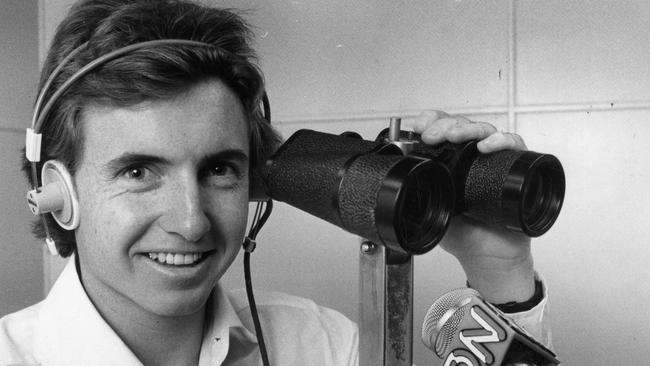
BRUCE’S BIRMINGHAM FORM GUIDE
McAvaney says Birmingham’s integration of the para and able-bodied programs provided a distinction that made the Commonwealth Games a wondrous event.
“The Olympics can’t do that,” he said. “They are just way too big, but we can do it in the Commonwealth Games.
“That combination of someone like Kurt Fearnley in the past, and Maddie de Rozario in the present just adds to the richness, then there’s Ellie Cole in her swansong.
“I am looking forward to the collective Australian team of able-bodied and para athletes and seeing how successful we can be.”
McAaveny’s snapshot of his most anticipated moments are many and varied.
“In a swimming sense, I am fascinated to see a couple of clashes,” he said. “Mollie O’Callaghan is taking on Emma McKeon. Mollie won three gold medals at the world championships, while Emma sat it out.
“Ariarne Titmus has a young Canadian girl Summer McIntosh swimming against her and that battle is going to be fascinating.
“There’s netball and the fierce competition between Australia and England, New Zealand and Jamaica.
“In track and field, from an international sense, it is the men’s and women’s sprints.
“In the women’s sprints, there is every chance Shelly-Ann Fraser-Pryce and Elaine Thompson (Herah) will both be there. One is arguably the greatest female sprinter of all-time and the other is the second greatest, and I am not sure which is which.
“Neither of these women has won an individual gold medal at the Commonwealth Games and they have won all of these gold medals at the Olympic Games and world championships. The battle between these Jamaican women will be one to watch.
“In the middle distance races, we’ve had a couple of golden periods in Australia. But I don’t think we’ve ever had a deeper group of men and women at 800m and 1500m before.
“Peter Bol and Joseph Deng are quite capable of both getting medals at the Commonwealth Games.
“Ollie Hoare can win the gold medal in the 1500m and if he doesn’t, ‘Stewie’ (McSweyn) has got a chance. We’ve only won the 1500m once (at the Commonwealth Games) and that was Herb Elliott in 1958.
“Then the battle between Eleanor Patterson and Nicola Olyslagers (McDermott) in the women’s high jump will be a highlight.”
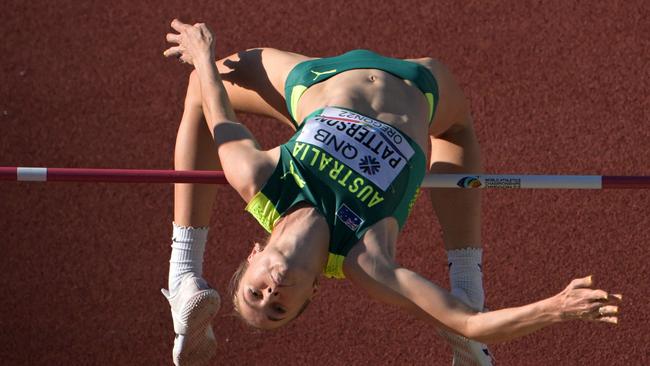
THE FUTURE
McAvaney believes Birmingham 2022 and Melbourne 2026 can give the Commonwealth Games the renewed impetus the event requires.
“The regional idea of Victoria is superb as the infrastructure will be lasting,” he said. “It will give those big regional venues such as Geelong and Ballarat facilities that are going to last 40 to 50 years and not only encourage people to compete and perform but to give them the facilities to do it in.
“There is a lot of conjecture about the long-term future of the Commonwealth Games. But if I said to you, ‘I’ve got this idea, why don’t we get the 70 odd nations and territories to gather every four years for a sporting festival, let’s call it the Commonwealth Games … it’s not the Olympics, but it’s a stepping stone to the Olympics’ … I reckon you’d say it’s a great idea.”
He said Brisbane’s hosting of the 1982 Commonwealth Games was a seminal moment in the city’s history. In 2032 - a half century on - that city will host the Olympic Games.
McAvaney doesn’t know what he will be doing when Melbourne’s 2026 Commonwealth Games are scheduled - but that year could mark his half century in sports broadcasting.
He gave up a role as a Telecom clerk to chase a career in sports broadcasting in late 1976.
He has recently re-committed to Channel 7 until the end of 2024, with no decision yet on which Australian network will broadcast the Paris Olympics in two years’ time.

Having been inducted into the Logies Hall of Fame last month, he could be excused for casting a look in the rearview mirror, but he says he has too many things to look forward to.
A conversation McAvaney had with Robert de Castella just before the 1984 Los Angeles Olympics has always stuck with him.
McAvaney recalled: “I said to Deek: ‘Do you feel that you have to win an Olympic gold medal to feel like you are completely fulfilled as an athlete?’ He said ‘No, what I have to do is to fulfil my potential and if I do that, I will feel complete’.
“I have thought about that a lot over the years and it has been my philosophy a bit. It is less about the accolades and less about the achievements. It is more about trying to do the best possible job and hopefully to let the scoreboard speak for itself.
“When you get to 69, and you have done some hard yards, it’s sometimes not as easy as it is at other times. But I do feel there is a genuine belief that I am still striving to improve and I feel like I can.
“I don’t think anyone is truly satisfied.”
For a man who prepares his mind and his craft just as meticulously as the athletes prepare their bodies ahead of a major event, McAvaney wouldn’t have it any other way.
CAN BRUCE REACH THE 50-YEAR CAREER MILESTONE?
Legendary sports broadcaster Bruce McAvaney has re-committed to Channel 7 for the next two years - until the end of 2024 - leaving the door ajar to potentially chase a 50-year career milestone.
McAvaney is preparing to call the athletes and take part in the opening ceremony coverage at the Commonwealth Games in Birmingham early on Friday morning - his first overseas trip in almost three years.
The newly-inducted Logies Hall of Fame member revealed to News Corp that conversations in recent months with Channel 7 Melbourne managing director Lewis Martin and Seven West Media boss James Warburton sealed plans to continue for at least the next two years.
“I am intending to work for Seven for another couple of years at least,” McAvaney, 69, said.
“I have had a chat to ‘Lewy’ (Martin) and James Warburton about that. I am intending to go on to at least the end of 2024.
“Do we (Channel 7) get the (2024) Paris Olympics? That hasn’t been decided yet.
“All the networks are in an interesting space right now. There are a lot of negotiations going on for sporting prizes at the moment. But unless something changes dramatically, I think I am capable of working for at least another two and a half years.”
McAvaney started in sports broadcasting in 1976. He famously took a day off as a clerk to travel from Adelaide to Kilmore, in country Victoria, to attend a race meeting.
On the trip, he met an Adelaide racecaller, a chat that led to a new career path for him in radio and later in television.
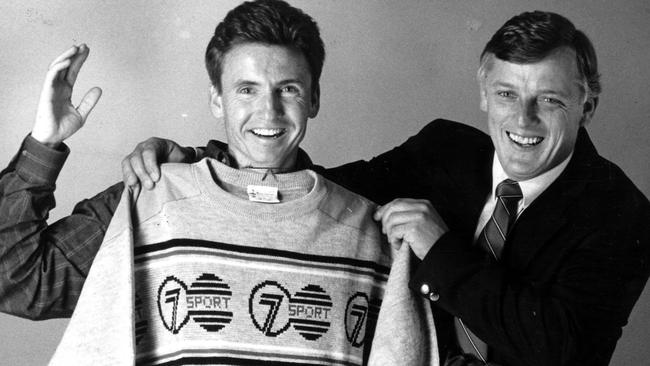
His new commitment with Channel 7 until the end of 2024 would take McAvaney to just a few years short of 50 years in the sports media, a rare milestone he might choose to chase.
Channel 7 sources stressed to News Corp that the recent discussions with McAvaney centred around “2024 and beyond.”
McAvaney had a serious health scare in 2017 when he was diagnosed with chronic lymphocytic leukaemia, but he said this week he was feeling fit and energetic about the future.
“I’m excited about what’s ahead,” he said. “I firmly believe that there is no reason why I can’t get better (as a caller).
“What drives me I guess is personal pride and you also have to remember that I am going to events that are so enjoyable.
“I’ve (just) been to a world athletics championships (in Eugene, Oregon), and I’m about to call at the Commonwealth Games in Birmingham.”
The anticipation of how the Australian team will fare in Birmingham is something that excites him ahead of his fifth Commonwealth Games.
“I don’t know what is going to happen, so that’s exciting,” he said.
“How is Rohan Browning going to run? How is Nicola Olyslagers going to jump? Will Ash Moloney win that decathlon? Can Peter Bol win?
“I am still going to these incredible events.
“Part of what I love is the quality of what I am watching. I am very, very fortunate. It is not like I am going into the bank, or going into the office to process somebody’s tax return.”
McAvaney said he was privileged to work alongside the Channel 7 team on the ground in Birmingham.
He was a key part of the network’s award-winning Tokyo Olympic Games coverage last year, but worked remotely from back in Australia due to the Covid pandemic.
“Tamsyn (Manou) and I will call the athletics and I will do a bit on the opening ceremony,” he said.
“The beauty is that you are sharing it with people who you like and respect and it is so good working with the team.”
# The Commonwealth Games Opening Ceremony will kick off early on Friday morning, with the 11 days of competition live on Channel 7.




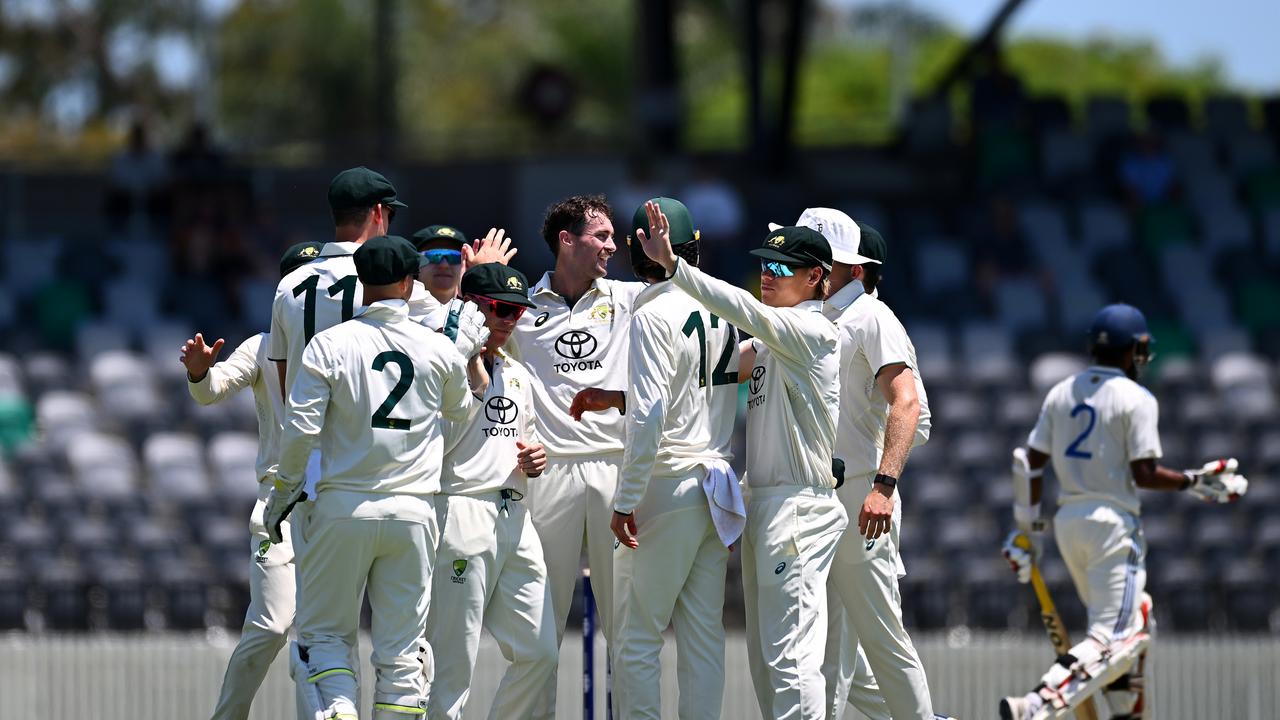
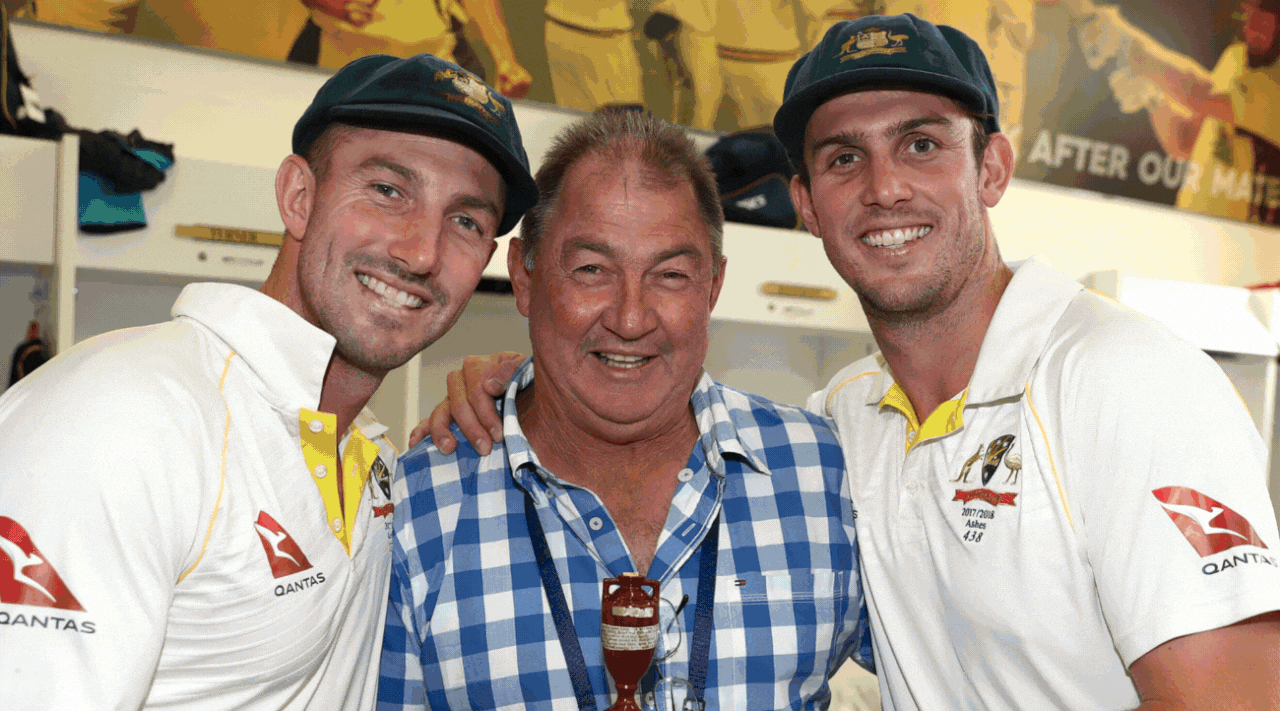
To join the conversation, please log in. Don't have an account? Register
Join the conversation, you are commenting as Logout